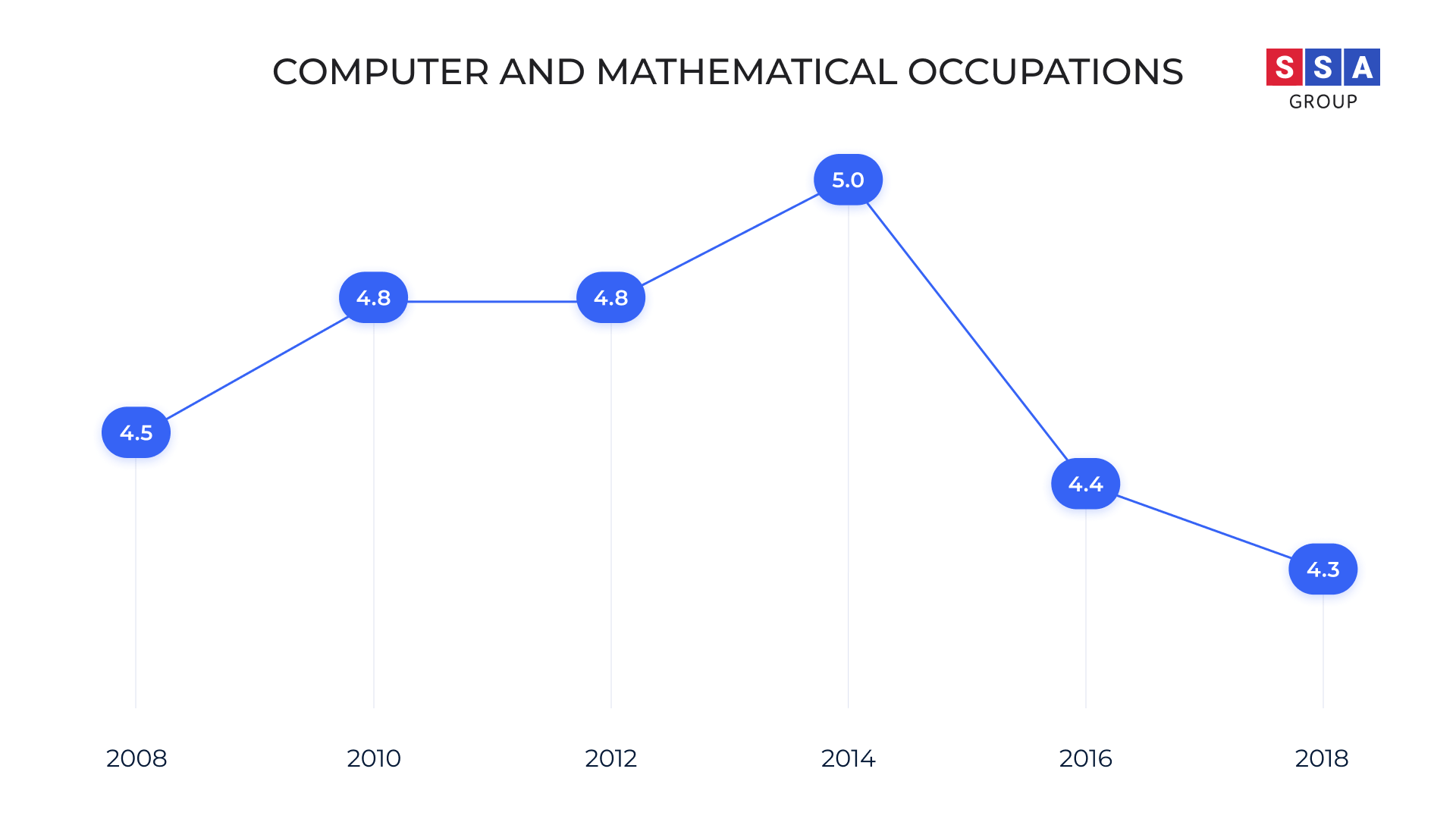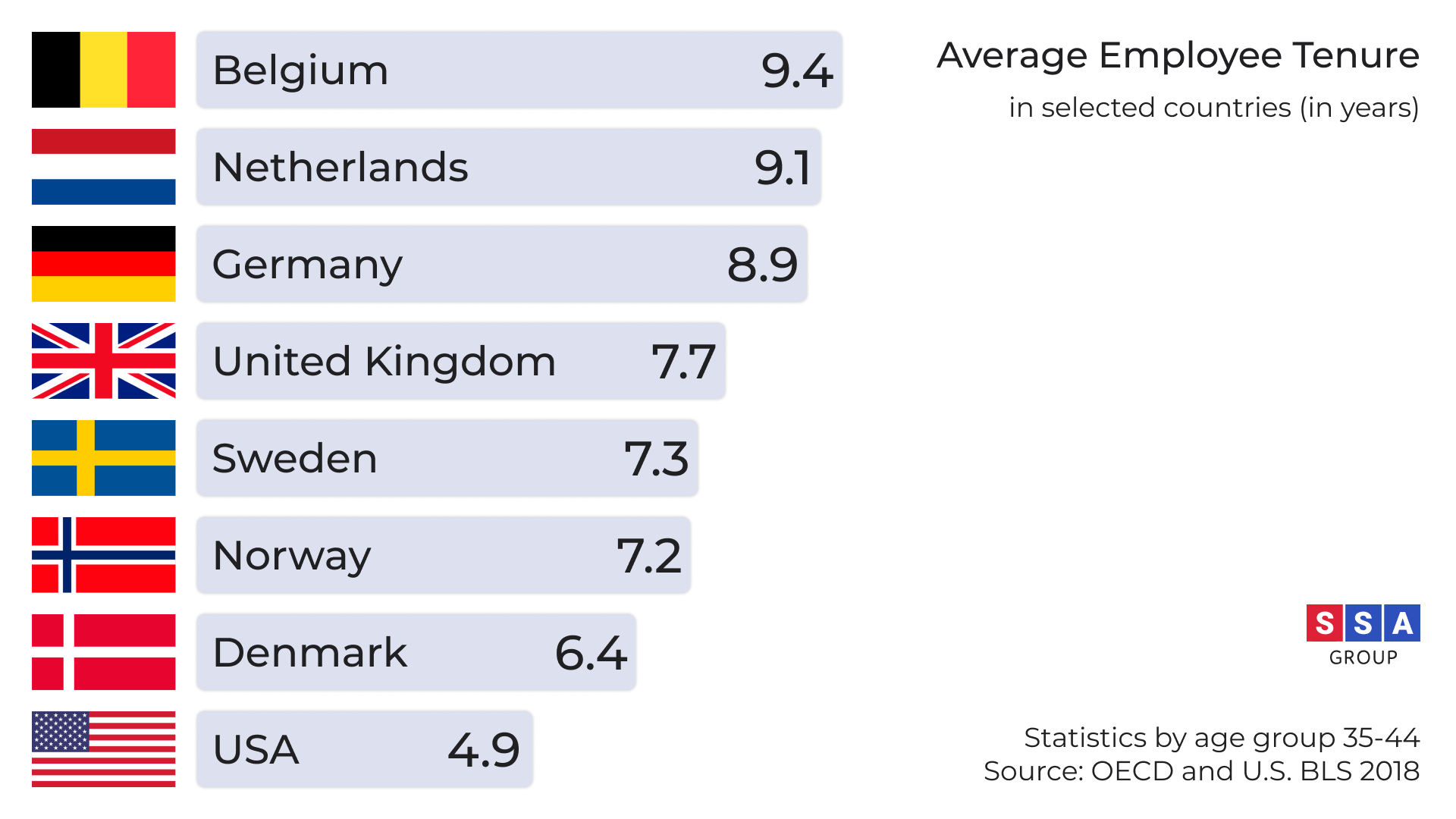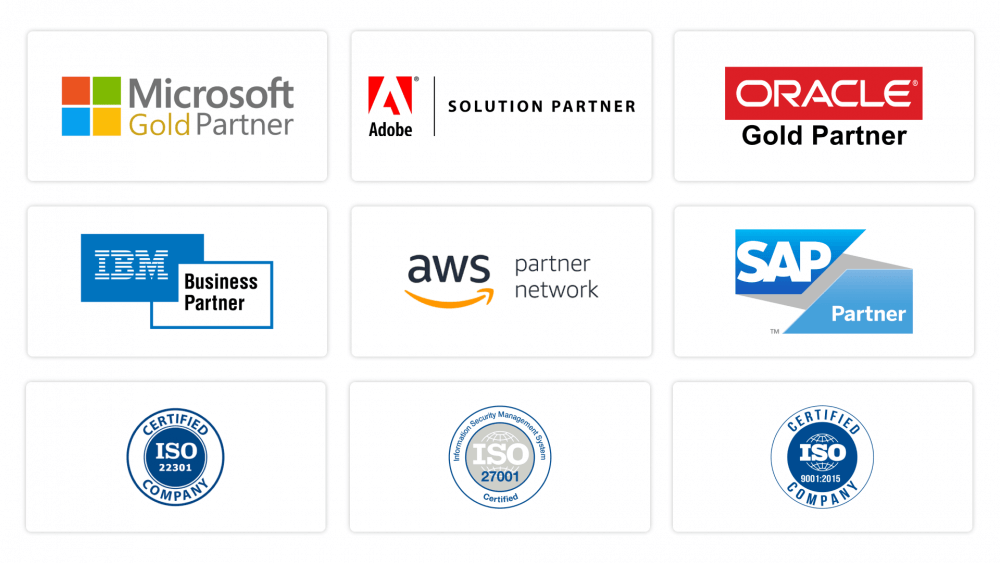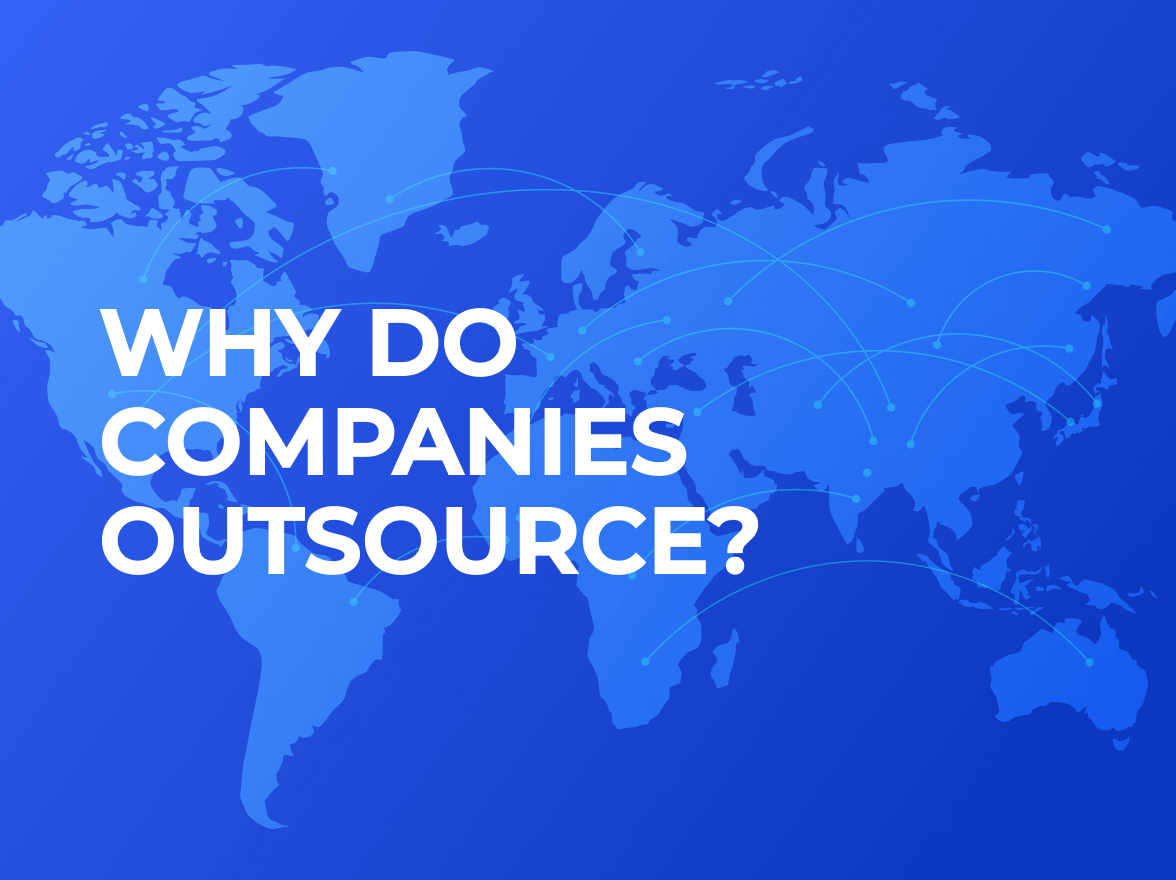Why do we recommend involving a Project Manager in every project?
Neglecting the importance of project management can be a critical mistake. Let’s discuss the role of a Project Manager and determine when this team member is necessary.
Choosing the right IT service provider is one of the most important decisions you can make and it’s best to have a clear understanding of what your company needs from this partnership. Even if it’s just one project based on a detailed brief from your company, it’s preferable to have an IT consultant with strong expertise in your industry to help expand your business. But how to evaluate an IT service provider? Let’s walk through the main factors to consider when choosing an IT partner that meets your business needs.
An IT service provider’s technical expertise is a crucial factor to consider. Case studies and clients’ references can help determine the maturity of the outsourcing vendor. You can request a detailed resumé of a relevant specialist and also arrange a meeting with one of the on-site experts.
It’s essential to remember that some projects require in-depth knowledge in a specific industry as well. A lack of domain expertise increases the learning curve, project failure risk, and costs.
Projects can evolve with and adapt to changing market demands. It’s important to choose an IT outsourcing partner that is able to support your company’s short-term and long-term plans.
A decade ago, outsourcing was seen as a method to reduce costs, but nowadays it’s more about increasing business revenue by employing cutting-edge technologies like IoT, machine learning, AI, etc. The rate of employing Eastern European outsourcing vendors has been growing year after year due to increased demand for specialists with a high level of expertise. That’s why outsourcing today is not always cost-saving. Moreover, cut-rate services can be a sign of low-quality work or a lack of experience.
Another essential question to ask is how long the company has been in business. How many long-term clients does it have and how many projects released? The trust factor heavily depends on the company’s age on the market and its experience. Mutual respect, trust, and understanding of business needs are the most critical factors to achieve an effective partnership. Time is needed to gain practical experience, mature as a company, and become experienced consultants.

Time zone differences can give your business a competitive advantage. For example, if you need 24/7 support for your customers worldwide, you might want to seek managed IT service providers in different, overlapping time zones. On the other hand, if your workflow requires communicating with the remote team during regular working hours, a significant time difference can be a problem for the project.
It is preferable to know what company types the IT provider works with, whether it be software product companies, enterprises, IT solution providers or IT consultancies. This information helps to identify the company’s focus.
One of the essential recommendations on how to choose the software development company is to check the market reputation of the IT partner before signing an agreement. A common practice is to ask for clients’ references and success stories. Sometimes it’s the only way to find out about clients and projects protected by a non-disclosure agreement (NDA) since this information cannot be made available in public on the website. Moreover, you can ask for the contacts of the clients representing a particular country or industry.
Additionally, you can check out the provider’s rating and clients’ reviews on Clutch and GoodFirms. It’s better to be certain that your partner has a good market reputation, can follow your business goals, and will deliver the project on time.
Another crucial matter in our guideline of how to evaluate an IT service provider is the company’s team seniority, not only the seniority level of its developers. Business development managers, accountants, and financial controllers play a large role in the project’s success. There’s a high risk of project failure if the provider’s team is inexperienced.
As for the software developers, there is only one rule: the more experienced the developer is, the better for the project in general. Of course, on big projects, the development team can include not only senior developers but middle or even junior developers. However, it’s essential to keep in mind that junior developers can’t work without supervision from their more sophisticated colleagues. You can’t expect highly complex tasks to be done by an inexperienced developer. Meanwhile, a senior developer can design architecture and develop an application independently.
Average employee tenure and turnover rate are good indicators of a healthy atmosphere in a company. However, longevity also depends on age and occupation. According to US statistics from 2018, the median tenure for computer and mathematical occupations is 4.3 years. The latest trends demonstrate that the median number of years that on-site employees have worked for their current employer decreases each year.

However, the reason for this lies in demographic characteristics. Median employee tenure is higher among older workers than younger ones. People aged 25 to 34 spend roughly 2.8 years in every job, while the median tenure of workers aged 35 to 44 is almost twice that, at 4.9 years. At the same time, European statistics are quite different.

As for the turnover rate, 10–15% is a good figure for the IT industry. You can ask your IT service provider for its statistics on employee tenure and turnover rates. Also, it can be valuable to know the provider’s employee retention strategy, onboarding process, internal employee training, salary review, and corporate culture in general.
Once you have a deal with the IT provider, it is essential to check the Intellectual Property clause in the agreement to make it clear that the ownership of all software products and source codes belongs to the client and can be provided on demand. Also, there should be an option to sign a non-disclosure agreement at any stage of the project.
The IT provider is expected to have flexible cooperation models suitable for all kinds of projects and available templates of agreements with transparent terms and conditions.
Managed IT service providers usually offer two cooperation models: resource-based (dedicated team model) and project-based, which includes such models as Time & Materials, Fixed Price, and Support packages. The choice of the cooperation model depends on project duration and the level of client involvement in the development process.
The dedicated team model is a perfect fit for a long-term partnership. This model allows for complete control over the development process, meaning the client can expand or reduce the size of the team according to the project’s needs. The client has full control over the remote team committed to the project that helps to achieve their joint goals. Project-based cooperation models are the best choice for short-term or pilot projects, as well as current support activities.
Another important indicator of reputable managed IT service providers is the response time to client inquiries. In case of a problem, it’s best to be able to reach out to your remote team as fast as possible. Thus, it’s a good idea to have a single point of contact with the IT service provider – for example, a dedicated account manager on your project.
Location greatly impacts communication with the remote team. It must be feasible to arrange a business trip to discuss the development strategy in person. It’s essential to know about the laws about crossing the border and visa requirements for the country where your future partner operates. Also, the availability of a local airport and direct flights will improve the whole communication process.
It’s almost impossible to catch senior developers on the bench. After finishing the current project, they take on a new one like a shot. To find a senior developer quickly, the recruitment department needs to work smoothly and have in the pool as many candidates as possible. That’s why it’s important to know a few facts about the potential outsourcing partner, such as the number of offices and locations, talent pool coverage, and the talent search strategy. This will give you an understanding of whether you can count on your partner if you need to scale up the remote team to meet your company’s growth plan.
IT certifications are standard proof of the vendor’s competency. There is a great number of technologies, products, and services the company can be certified in. The most valuable certifications in the IT industry are

These certifications guarantee high-quality IT services for clients.
At least 7.9 billion records have been exposed through data breaches as of 2019. Cyber attacks against businesses rise year after year, causing financial losses and reputational damage. That is why you must prioritize security issues. It’s vital that your IT partner has a highly secured IT infrastructure to manage and protect your sensitive business data. This includes reliable and productive servers, equipment, in-house data centres, and UPS systems to ensure smooth operation in case of emergency.
When planning a long-term partnership with an IT service provider, you should expect business processes to be handled transparently and responsibly to ensure the project finishes on time. It’s not too much to ask the provider a few questions upfront, such as “What if a developer won’t handle the task?” or “Is there any trial period for our collaboration?” A reliable business partner always admits possible failures and agrees to bear the risks.
If the provider asks for prepayment, this is nothing to worry about. It means that the company commits to take on the project and get it done. However, be sure your contract contains material breach and prepayment refund clauses.
Yes, it’s tough to decide whether to outsource or not, but it’s twice as tough to outsource tasks effectively to achieve business growth and efficiency. We recommend that you read these points, determine the ones that are the most relevant for your business, and review your future IT partner point by point. We believe it will help you properly choose the IT outsourcing partner to transform your ideas into reality.
The Template on How to Evaluate an IT Service Provider is available for download:

Neglecting the importance of project management can be a critical mistake. Let’s discuss the role of a Project Manager and determine when this team member is necessary.

Today, the benefits of outsourcing in the IT industry are undeniable, offering so much more than a simple reduction in software development costs.
you're currently offline